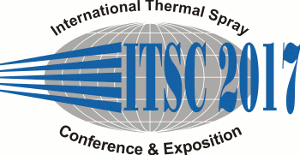
|
5356 |
|
Friday, June 09, 2017, Hall 14 12:00 PM Electronics & Sensoric |
|
Transfer of wire arc sprayed metal coatings onto plastics parts |
|
Xifang Liao* / RWTH Aachen University, Germany Kirsten Bobzin / Surface Engineering Institute (IOT), RWTH Aachen University, Germany Mehmet Öte/ Surface Engineering Institute (IOT), RWTH Aachen University, Germany Martin Knoch/ Surface Engineering Institute (IOT), RWTH Aachen University, Germany Christian Hopmann/ Institute of Plastics Processing (IKV), RWTH Aachen University, Germany Philipp Ochotta/ Institute of Plastics Processing (IKV), RWTH Aachen University, Germany Philipp Ochotta/ Institute of Plastics Processing (IKV), RWTH Aachen University, Germany |
|
By means of In-Mold-Metal-Spraying (IMMS), wire arc sprayed metal coatings are transferred onto plastics parts during the injection molding process for the efficient production of metallized plastics parts. One potential field of application of IMMS parts are electrical applications such as electrically conductive tracks or electromagnetic shielding. Therefore, the properties of the transferred coatings, especially the electrical properties, are determined. In the current study, different feedstock materials are used for the application of the coatings. In order to investigate the influence of the spraying process parameters on the coating properties, spraying distance, current and pressure of the atomizing gas, are varied. In the first investigation, pressured air is used as atomizing gas for wire arc spraying. In contrary to Zn coatings, Cu coatings which are applied the same way can only achieve a significantly lower specific electrical conductivity in comparison to compact Cu foils. One possible reason for this is the oxidation of the Cu particles during the spraying process. Therefore N2 and a mixture of N2 and H2 are used as atomizing gas in order to reduce the oxidation of particles. As a consequence, the specific electrical conductivity of IMMS parts can be significantly improved. |